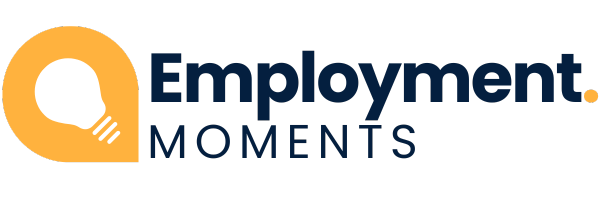Job interviews can be really tough, making you feel nervous. It’s normal to feel this way. The trick is to learn how to stay calm during these interviews.
By understanding and managing your nerves, you can show more confidence. This article will share tips to help you feel more at ease. You’ll learn how to present yourself well and tackle the interview with confidence.
Understanding Interview Nerves
Interview nerves come from many sources, causing anxiety and worry. It’s key to know what triggers these feelings to tackle them. Many feel judged, under pressure to perform well, and unsure about the future.
Common Sources of Anxiety
The fear of being judged is common in job interviews. Candidates worry about their skills, personality, and answers. This fear can make it hard to think clearly.
Thoughts of making a bad impression or failing can make nerves worse.
How Nerves Impact Performance
Nerves can really affect how well you do in interviews. Anxiety can make you lose focus, leading to confusion or missing questions. It can also make communication skills suffer, causing you to stumble or lose your train of thought.
Studies show over 70% of candidates feel some level of nerves. Knowing this can help you see nerves as a chance to grow, not just a problem.
How to stay calm in a job interview
Keeping calm in a job interview is key to showing confidence. Good preparation can lower your anxiety and boost your success chances. Start by learning about the company and its culture. This helps you feel more at ease and prepared.
It’s also important to know common interview questions and practice your answers. Role-playing with a friend or in a mirror can make you feel more confident. Arriving early lets you get used to the setting, which can help you feel less nervous.
Your body language is crucial in showing confidence. Stand up straight and make eye contact to feel more calm. Positive self-talk before and during the interview can also help you feel more confident. Staying calm not only helps you but also makes a good impression on the interviewer.
| Preparation Step | Benefit |
|---|---|
| Research the Company | Increases familiarity and reduces anxiety |
| Practice Common Questions | Enhances response delivery and boosts confidence |
| Arrive Early | Provides time to settle and adapt to surroundings |
| Adopt Confident Body Language | Projects confidence and calms nerves |
| Use Positive Self-Talk | Improves self-esteem and reduces stress |
Effective Stress Management Techniques
Managing stress is key to doing well in interviews. Techniques like thorough preparation and visualization can boost confidence. This leads to better interview results.
Preparation is Key
Being well-prepared helps manage stress. Practicing interview questions in front of a mirror or with friends makes it feel more real. Knowing the material well boosts confidence.
Having a list of questions to ask the interviewer shows you’re ready. This reduces anxiety and makes you feel more in control.
Utilizing Visualization Techniques
Mental rehearsal is a strong tool for interview prep. Visualization, used in sports, helps you see yourself succeeding in the interview. It lets you imagine answering questions well and handling surprises.
These mental exercises make you feel more familiar and in charge. They improve your confidence during the interview.
Building Confidence for Interviews
Feeling confident in interviews is key to making a good impression. Celebrating small wins during your job search can help. This could be finishing a great resume, getting a referral, or practicing interview questions.
These achievements build your confidence. They make you feel more positive and ready for the interview.
Using affirmations is another way to fight interview nerves. Reminding yourself of your strengths and past wins can boost your mood. Being around people who believe in you can also make you feel more confident.
Learning new skills or going to workshops can also help. When you know more, you feel more prepared. This reduces your stress and makes interviews feel like chances to succeed, not just challenges.

